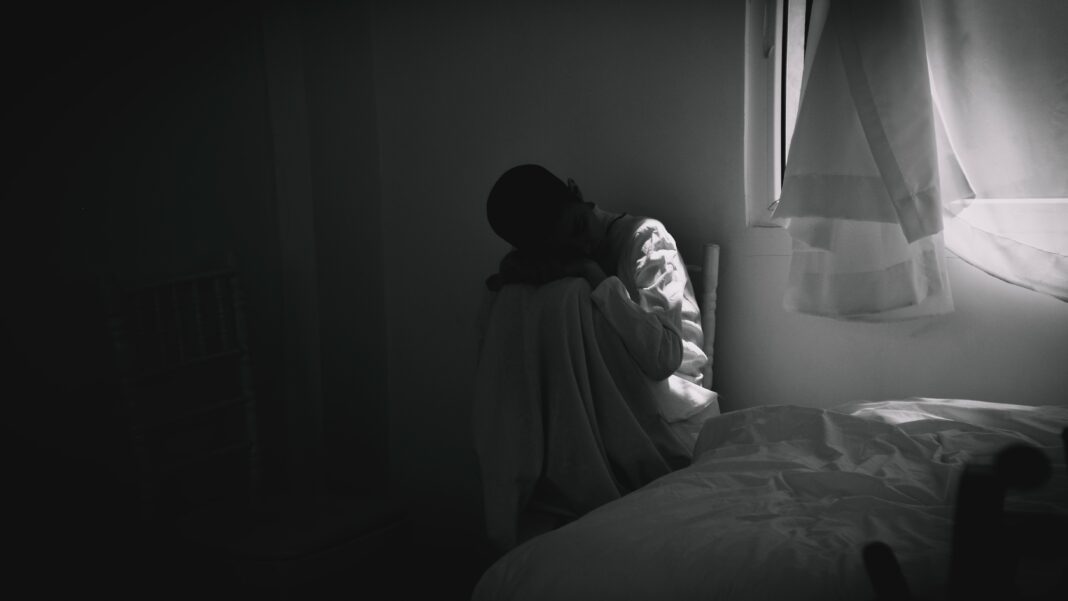Stress and sleep disorders are interdependent, with stress impacting sleep quality and poor sleep having negative effects on stress levels and coping ability. This creates a cycle that harms an individual’s health and quality of life.
A study by Ray M. Merrill and Kayla R. Slavik published in Plos One found that stress is significantly elevated in parents who either have sleep disorders or have children with sleep problems.
The study analyzed almost 14 thousand adult employees with children from the US. The results showed that parents with insomnia were three times more stressed than other participants, and the ones suffering from apnea had almost two times higher stress levels. Additionally, if children had any sleep disorder, their parents suffered nearly two times greater stress and offspring with insomnia increased parental stress up to three times.
The rates of parental stress were 90% higher if their child had a sleep disorder, 189% higher if the child had insomnia, and 81% higher if the child had sleep apnea. The link between children’s insomnia, apnea, and parents’ stress was stronger for women.
The findings led researchers to propose that a deeper understanding of the association between parent and child sleep, and parent stress may lead to more effective treatment and reduce the risk of such disorders.
Sleep disorders in children
Child sleep disorders are prevalent and earlier studies indicated that these behaviors are influenced by complex interactions between parents’ sleep, stress, mood, and fatigue.
A 2021 study by Lawrence T Lam suggested a potential connection between early childhood sleep disorders and mental health issues such as anxiety, depression, and ADHD in teenagers.
Throughout adolescence, various internal and external factors can impact a young person’s mental health, with sleep disorders being a symptom of underlying mental health problems. Childhood sleep disorders also have a link to mental health issues, particularly bipolar disorder and schizophrenia, leading to increased parental stress.
Parental stress increasing
Parents of children with mental health or sleep difficulties have a higher chance of developing sleep disorders such as insomnia, hypersomnia, and sleep apnea. These issues can raise stress in forms like daytime sleepiness and decreased performance.
Child sleep disorders and parental stress interact in complex ways, affecting both parents and child’s mental health. Prolonged sleep latency, inability to stay asleep and early morning awakening are linked with mental health disorders such as depression.
In a study held in 2019, Martin and the team found that sleep problems in children were linked to more stress for parents and worse mental health for the affected kids. The stress brought about by a child’s mental health or sleep issues can exacerbate the symptoms of the parents and raise their probability of developing mental health problems.
How to have a good night sleep
The key to enhancing the sleep health of the entire family is consistency, although there are several other measures that can be taken.
- Establish a consistent sleep routine: A routine helps regulate sleep patterns, making it easier for everyone to fall asleep and wake up at the same time every day.
- Create a sleep-conducive environment: A quiet, dark, and cool room can help create a relaxing and peaceful environment.
- Limit screen time before bedtime: The blue light from screens can interfere with sleep, so it’s important to limit screen time at least an hour before bedtime.
- Exercise regularly: Regular physical activity can help improve sleep quality and relieve stress.
- Avoid caffeine and heavy meals close to bedtime: Caffeine and heavy meals can interfere with sleep, so it’s best to avoid consuming them close to bedtime.
- Encourage relaxation before bed: Relaxing activities such as reading a book, taking a bath, or meditating can help prepare the mind and body for sleep.
- Avoid napping during the day: Napping can interfere with nighttime sleep, so it’s best to limit naps to no more than 20-30 minutes.
- Address sleep disorders: If anyone in the family is struggling with sleep disorders such as insomnia, hypersomnia, or sleep apnea, seeking medical treatment is recommended.
- Reduce stress: Stress can interfere with sleep, so it’s important to find healthy ways to manage stress, such as practicing mindfulness or exercising.
References.
Merrill RM, Slavik KR. Relating parental stress with sleep disorders in parents and children. PLoS One 2023; https://doi.org/10.1371/journal.pone.0279476
Meltzer LJ, Mindell JA. Relationship between child sleep disturbances and maternal sleep, mood, and parenting stress: a pilot study. J Fam Psychol 2007; 21: 67–73. DOI: 10.1037/0893-3200.21.1.67
Lam LT, Lam MK. Sleep Disorders in Early Childhood and the Development of Mental Health Problems in Adolescents: A Systematic Review of Longitudinal and Prospective Studies. Int J Environ Res Public Health; 18. Epub ahead of print 10 November 2021. DOI: 10.3390/ijerph182211782.
Martin CA, Papadopoulos N, Chellew T, et al. Associations between parenting stress, parent mental health and child sleep problems for children with ADHD and ASD: Systematic review. Res Dev Disabil 2019; 93: 103463. DOI 10.1016/j.ridd.2019.103463





